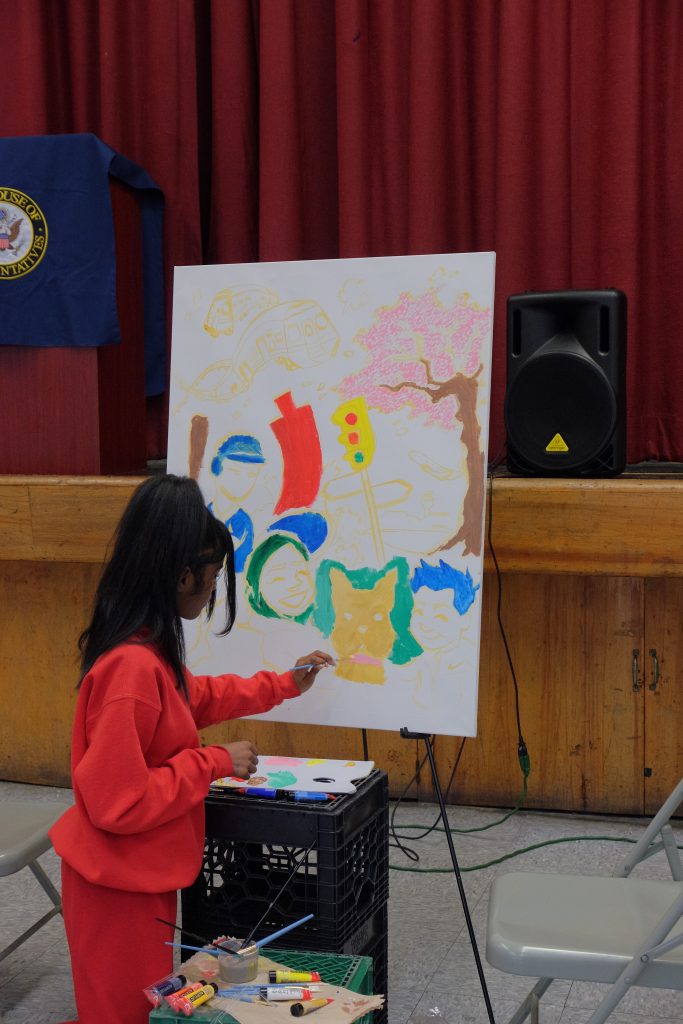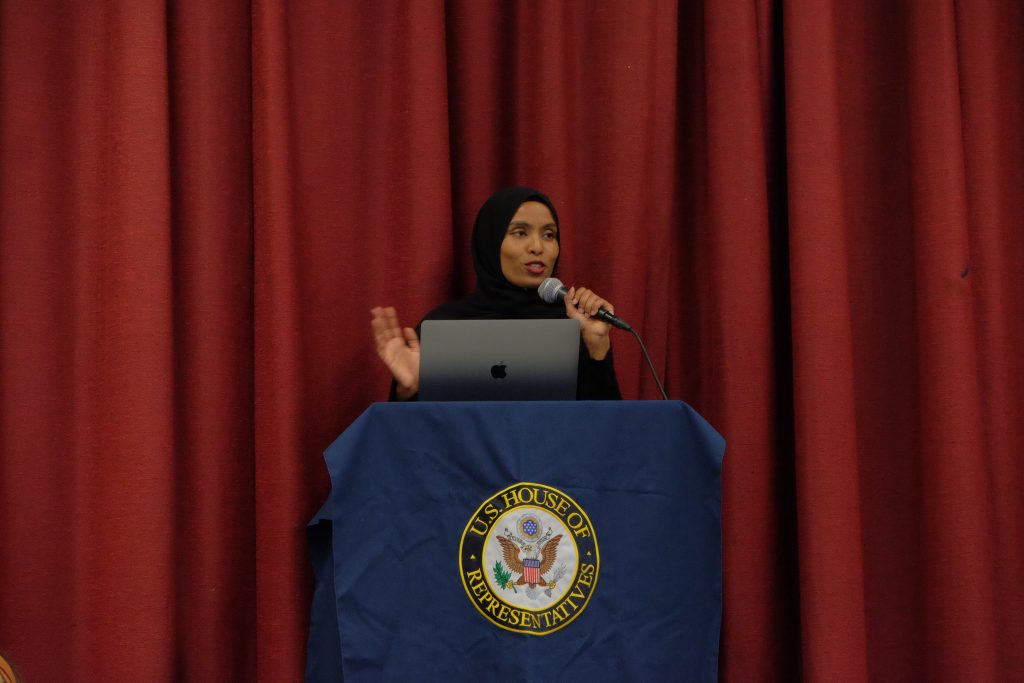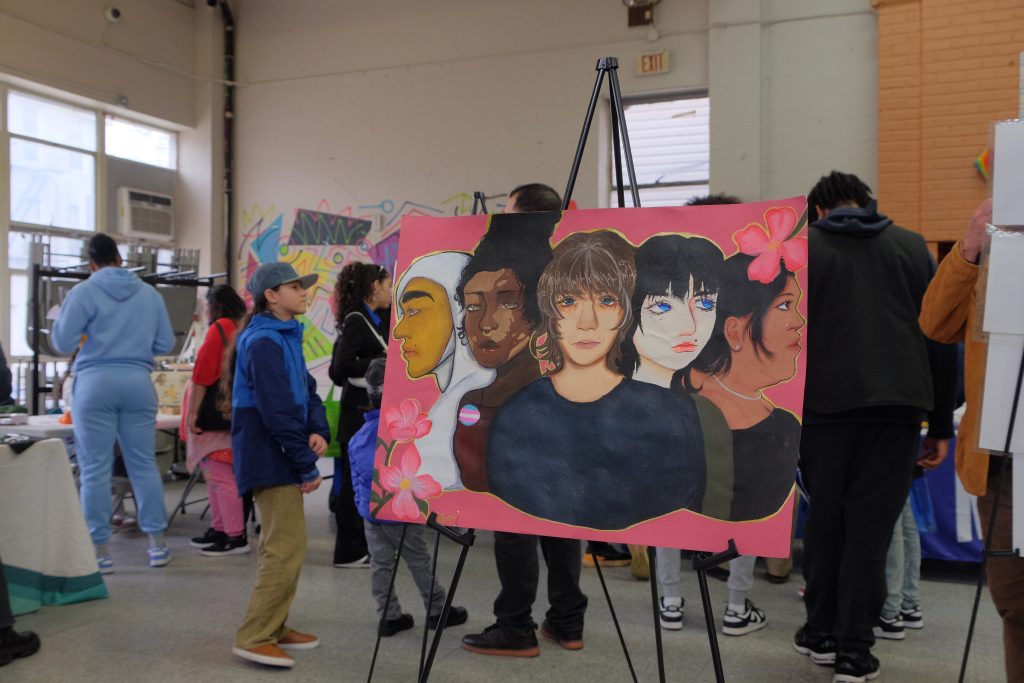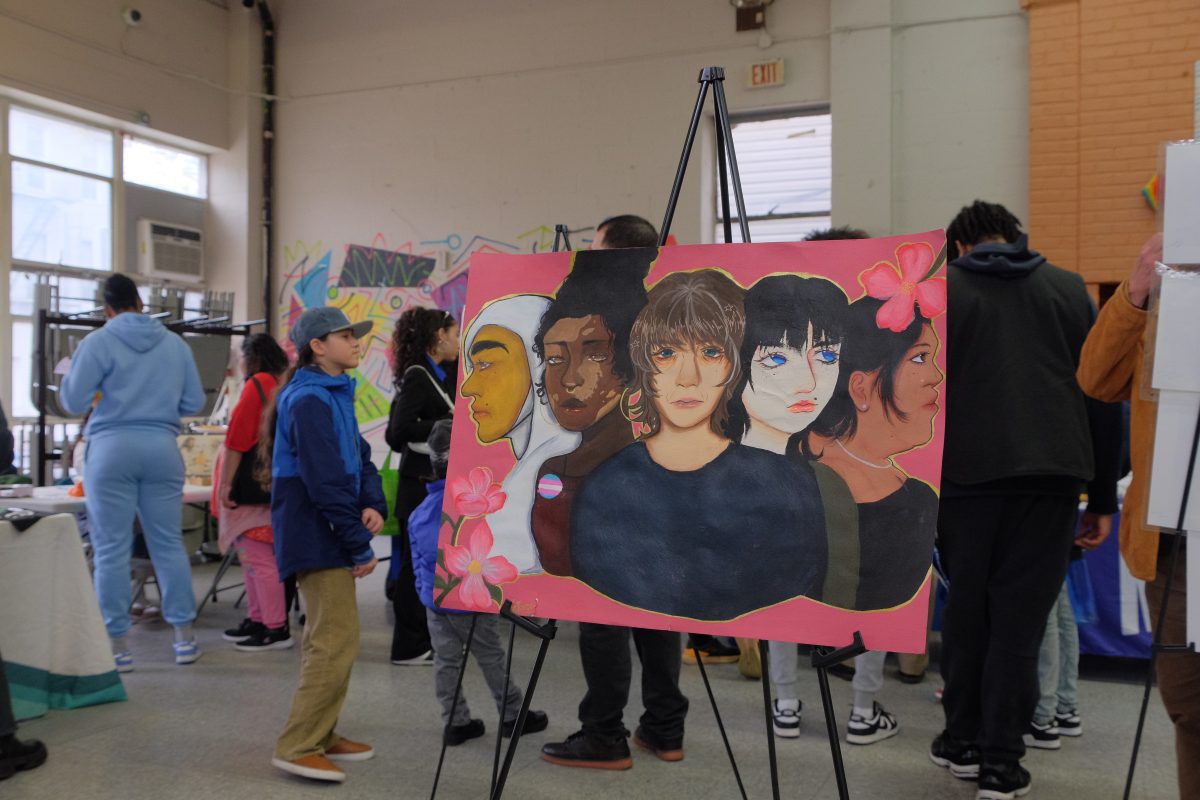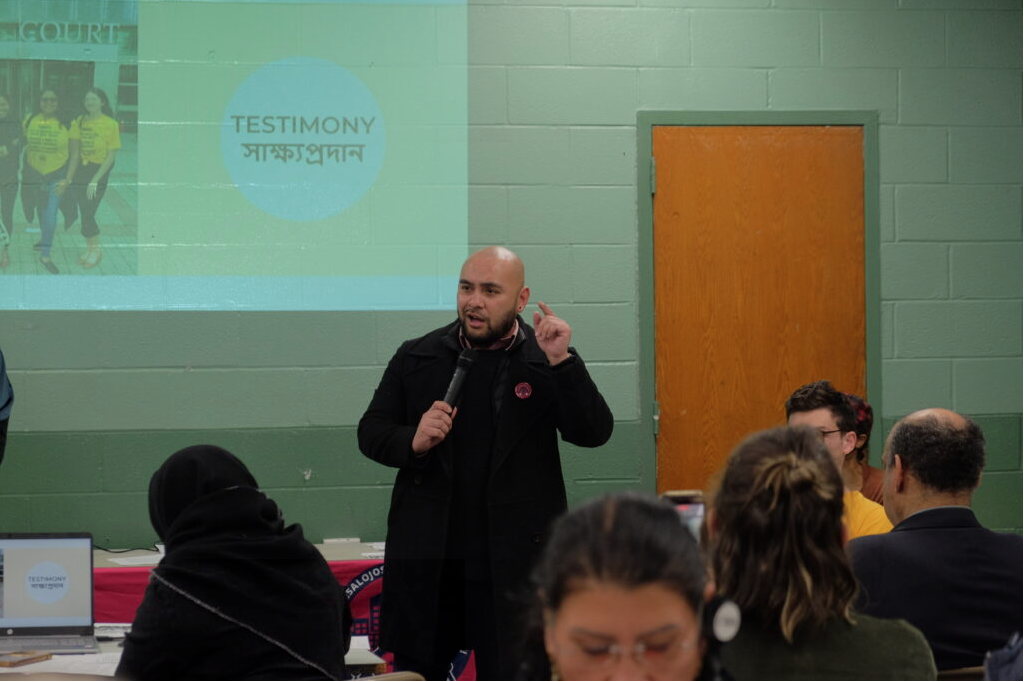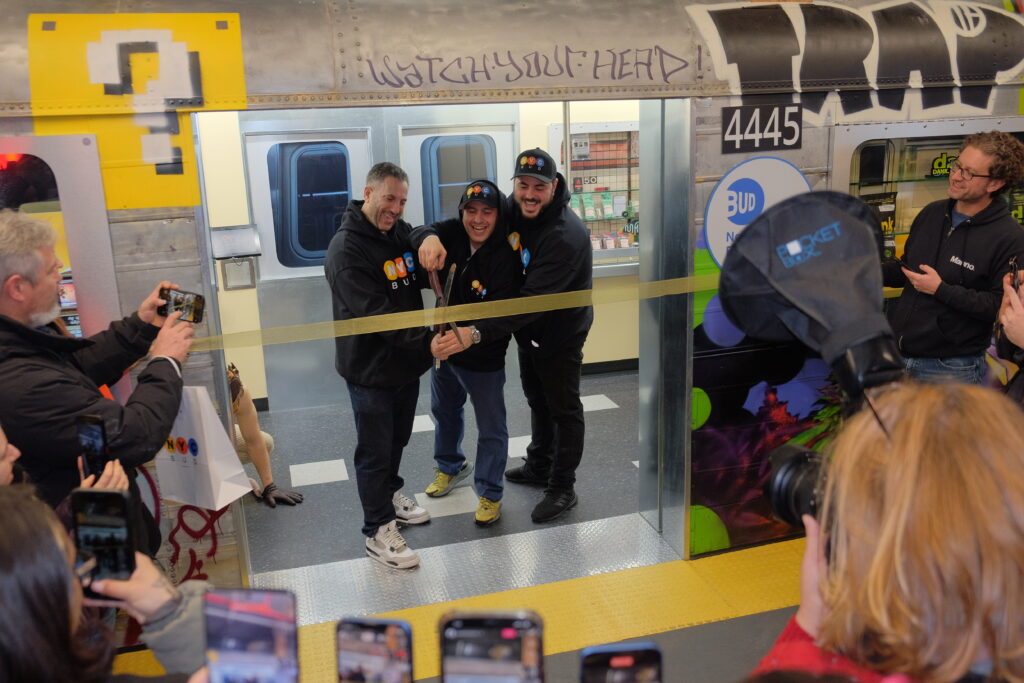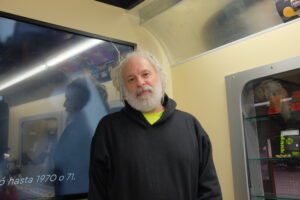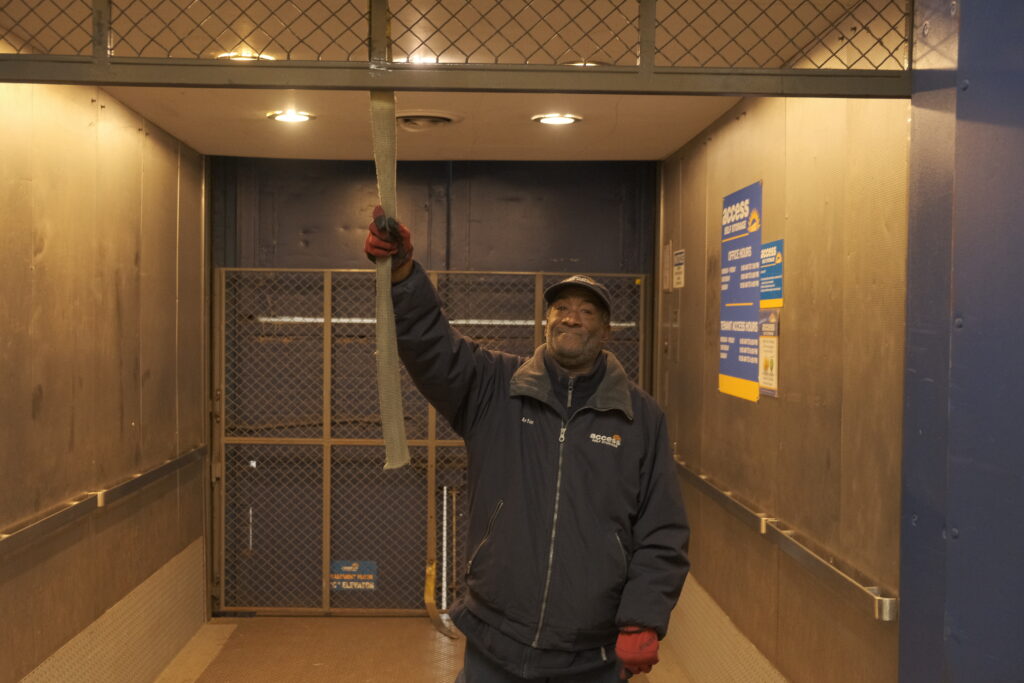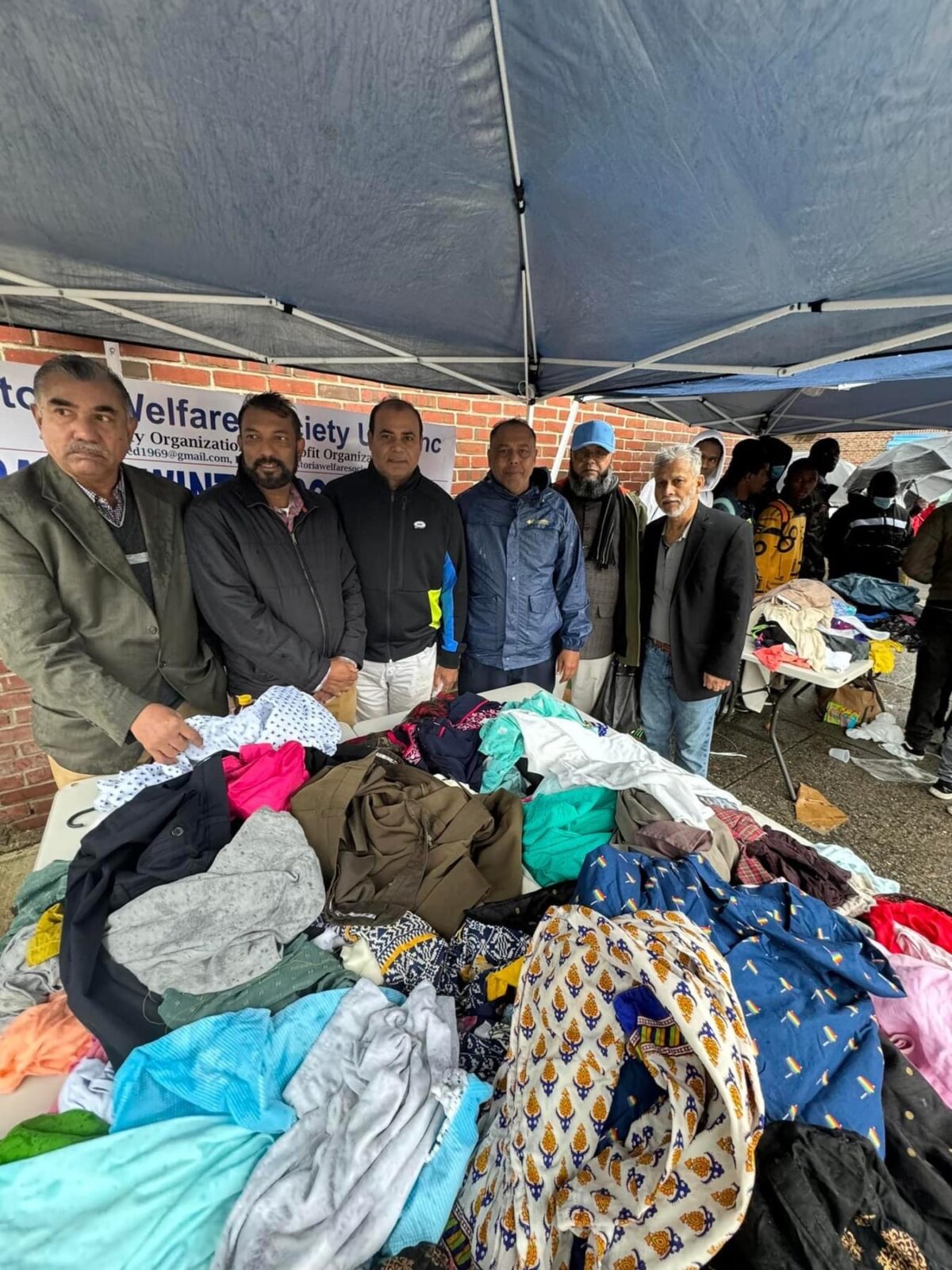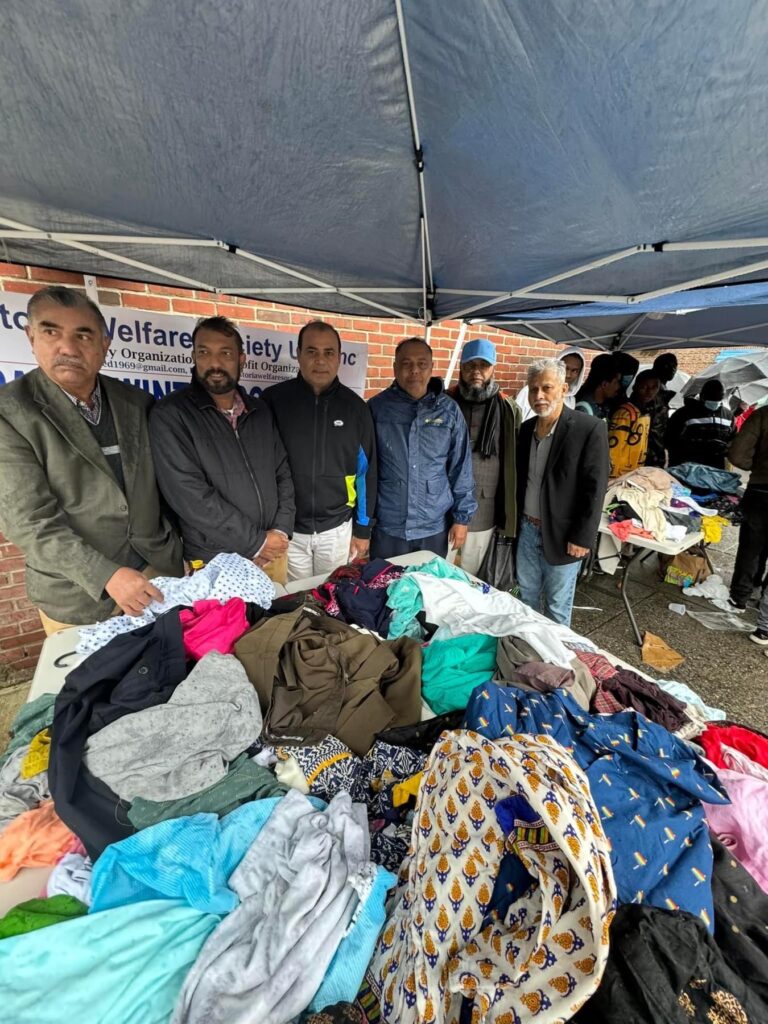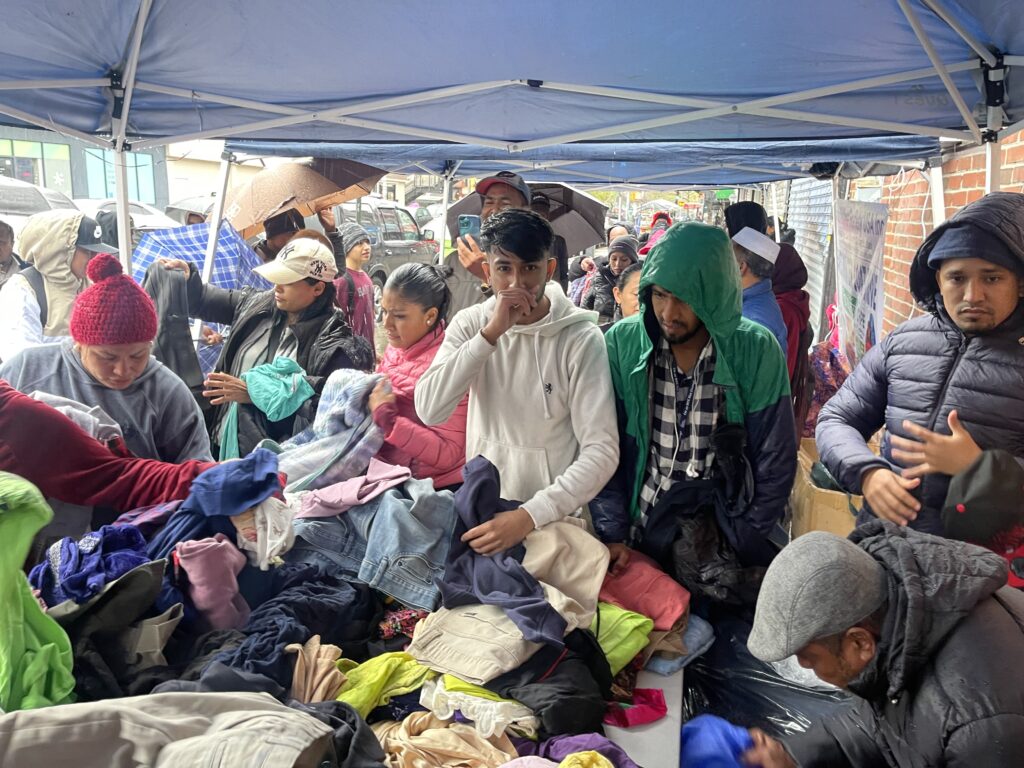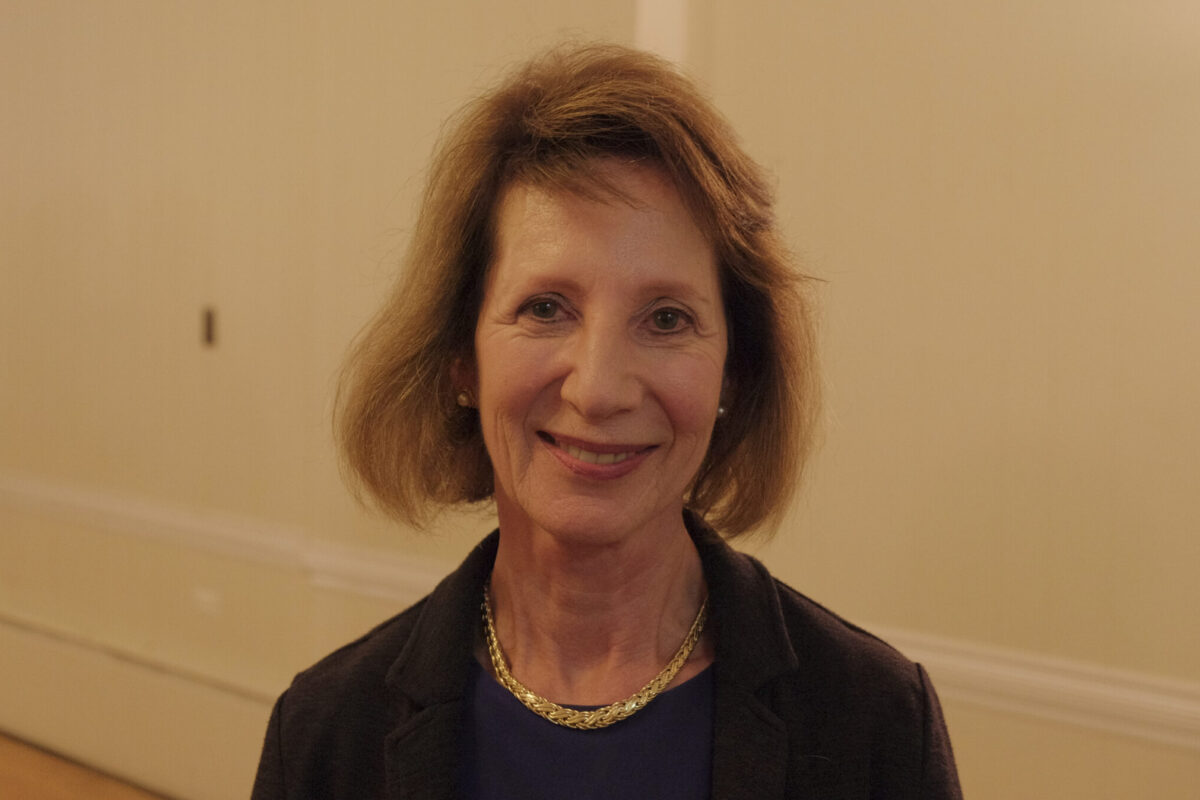By Charlie Finnerty | cfinnerty@queensledger.com
The Ronald Reagan Republican Club of Astoria hosted Diana Furchtgott-Roth, director of the Heritage Foundation’s Energy and Climate Center, at their monthly meeting. Furchtgott-Roth spoke about American energy independence, infrastructure and the proliferation of electric vehicles. Activist, former mayoral candidate and founder of the Guardian Angels, Curtis Sliwa, also spoke at the Tuesday, Oct. 17 event as well as a representative from Republican Kelly Klingman’s campaign for Tiffany Cabán’s City Council District 22 seat.
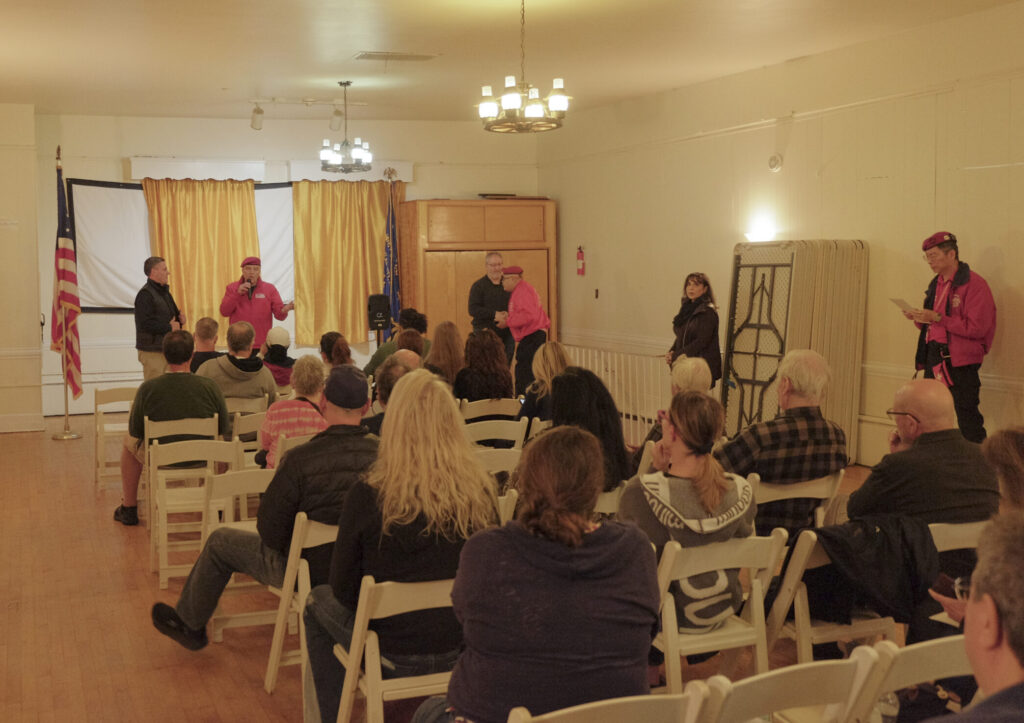
The Reagan Club at Rocco Moretto VFW Post. Credit: Charlie Finnerty
“I am always honored to speak to anyone who invites me. It is always a great pleasure to come and speak to anyone who is interested in better economic policies and particularly energy policy,” Furchtgott-Roth said.
Robert Hornak, vice president of the club, has been in Republican Party organizing since his early days in the Young Republicans Club. Hornack said connecting grassroots political organizations to larger conservative names on the national stage is essential to building a sustainable local party.
“One of the things I learned very early when I was running [the Young Republicans] was that the more interesting the speaker, the better the crowd,” Hornack said.
In addition to her work at the Heritage Foundation, Furchtgott-Roth is an adjunct professor of economics at George Washington University and previously served in the Reagan, Bush senior, Bush junior and Trump presidential administrations. Furchtgott-Roth, said one of her top priorities when speaking on energy policy is the security implications of energy independence.
“Whether it’s a small or a large event, the message is the same,” Furchtgott-Roth said. “We don’t want to be dependent on China or any other country for our energy production.”
In her speech, Furchtgott-Roth claimed that the production of wind turbines and other renewable energy infrastructure materials in China would make renewable energy in the United States dependent on Chinese manufacturing while many domestic oil reserves remain untapped, blaming President Biden’s “war on fossil fuels.”
“If we depend on wind turbines and solar panels, we are not self-reliant, we are dependent on another country,” Furchtgott-Roth said. “There is a fundamental difference in policy between people who think that we should be moving towards renewables and people who are thinking that we should be resilient and self-reliant and have energy independence.”
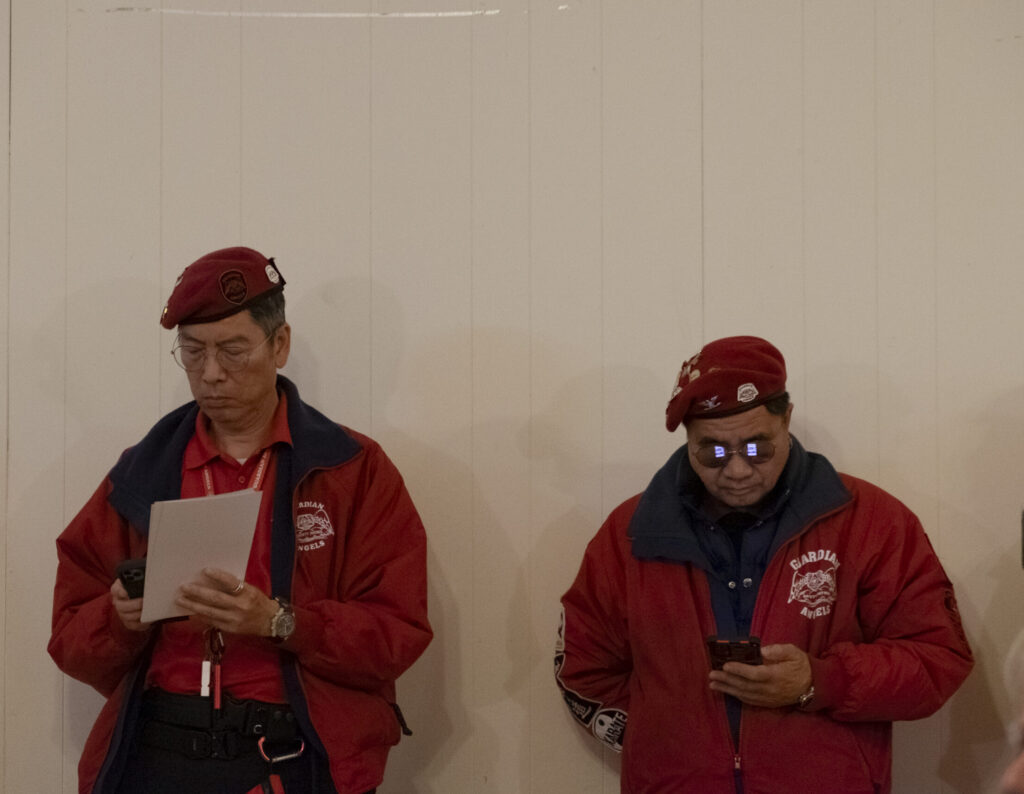
Guardian Angels at the club meeting. Credit: Charlie Finnerty
According to USAFacts.org, the majority of American solar panels are imported with three-quarters of those imports originating from Chinese subsidiaries. In 2004, the US accounted for about 13% of global solar panel shipments but that number fell to just 0.5% in 2017. The US produces up to 90% of domestic wind turbine parts in 500 manufacturing facilities employing over 100,000 people, but is still heavily reliant on imported raw materials such as steel and lithium batteries.
To address concerns about domestic energy manufacturing needs, the 2022 Inflation Reduction Act included over $15 billion in clean manufacturing tax incentives for American renewable infrastructure investments. According to the World Resources Institute, in the year since the IRA passed, manufacturing construction has roughly doubled with forecasts of higher growth in the next few years. Manufacturers of battery components, wind and solar equipment, and electric vehicles have announced tens of billions of dollars in new investments. Between August 2022 and July 2023, 272 new clean energy projects were announced in 44 states, generating more than 170,000 new jobs.
On the post-IRA manufacturing shift in the US, Furchtgott-Roth said there have been gains but would like to see more. She also added that a share of those manufacturing gains have come from Europe, leaving less of an impact of China’s control on the market than immediate numbers might suggest.
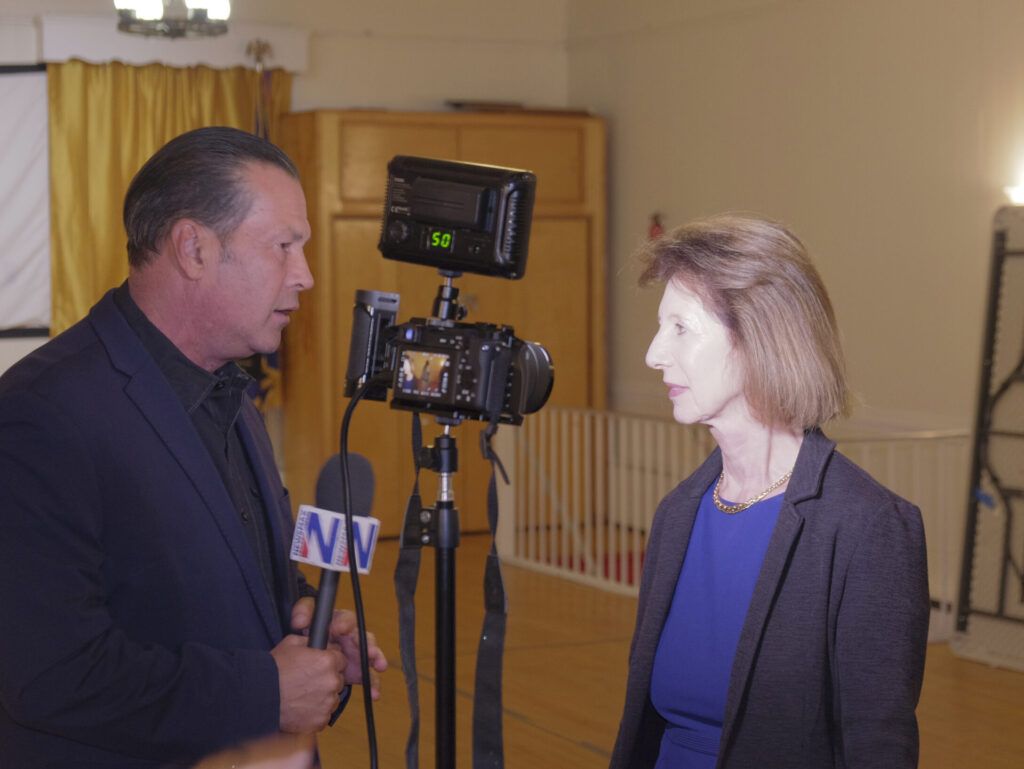
Furchtgott-Roth. Credit: Charlie Finnerty
“Some [manufacturing] is shifting back to the United States, but some is still in China,” Furchtgott-Roth said. “We also have manufacturing that’s moving from Europe to the United States, because the price of electricity is so high in Europe.”
Furchtgott-Roth also spoke at a number of other events while in the city, including a debate at Pace University Law School about the gender wage gap and an appearance on Stuart Varney’s show on Fox Business.
